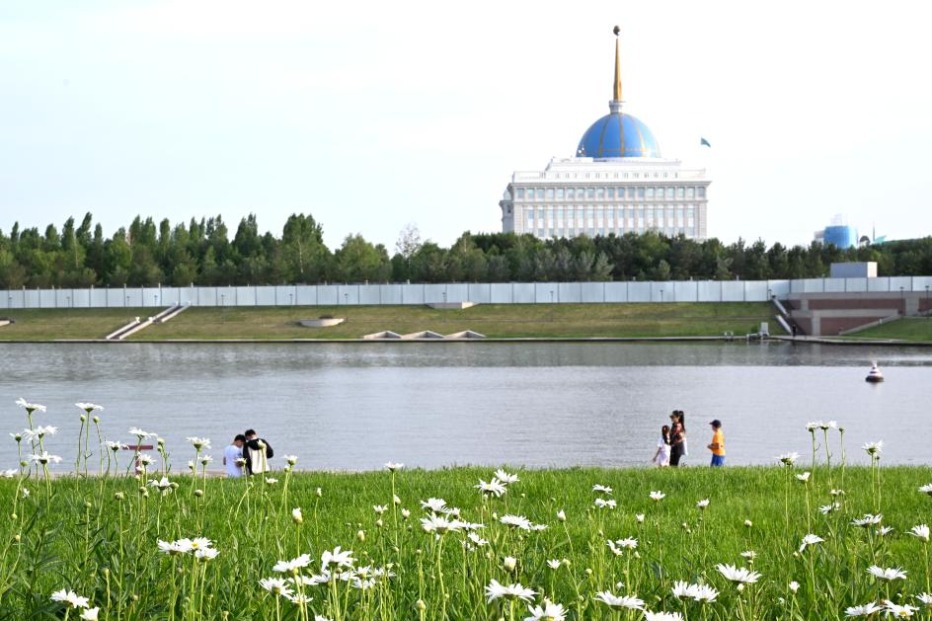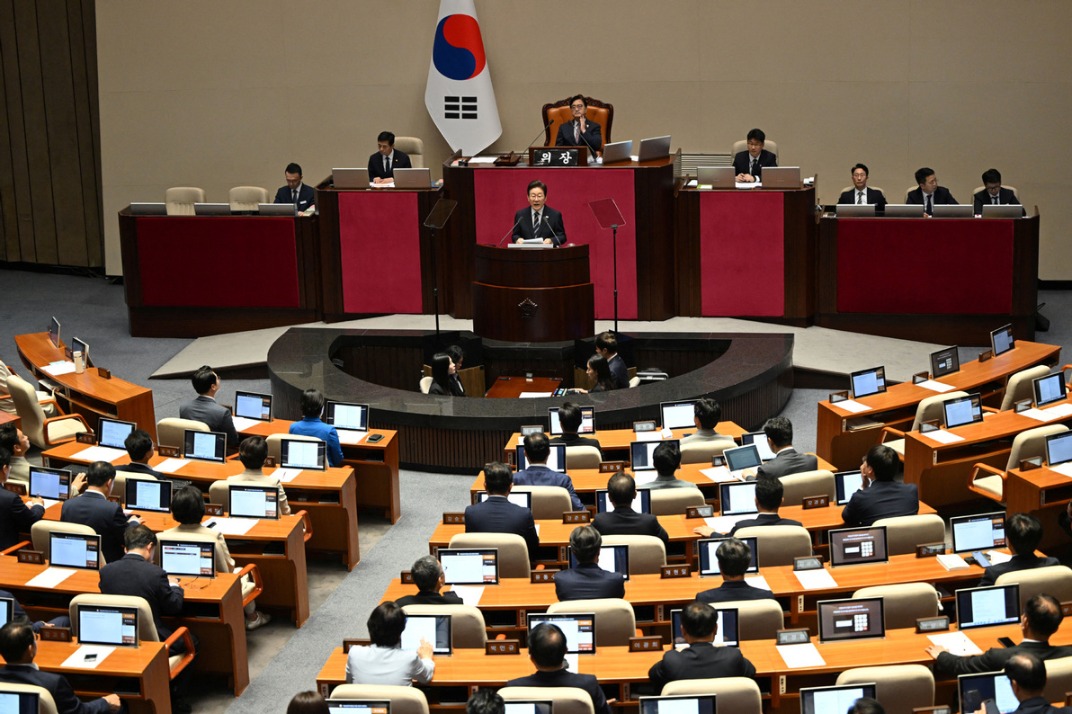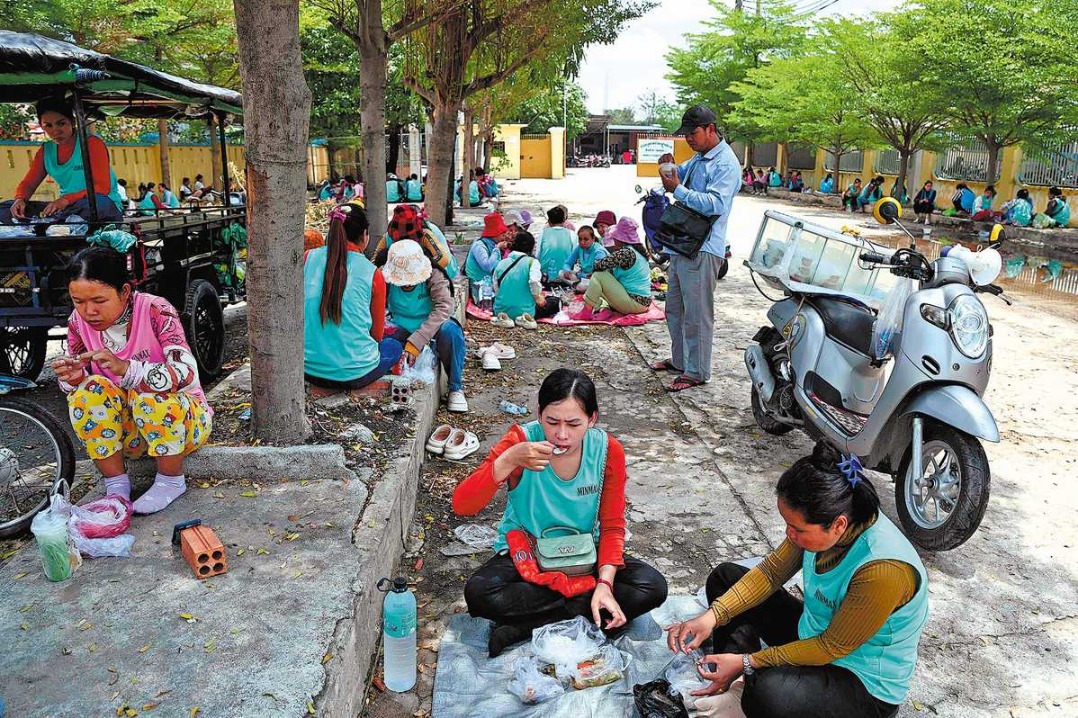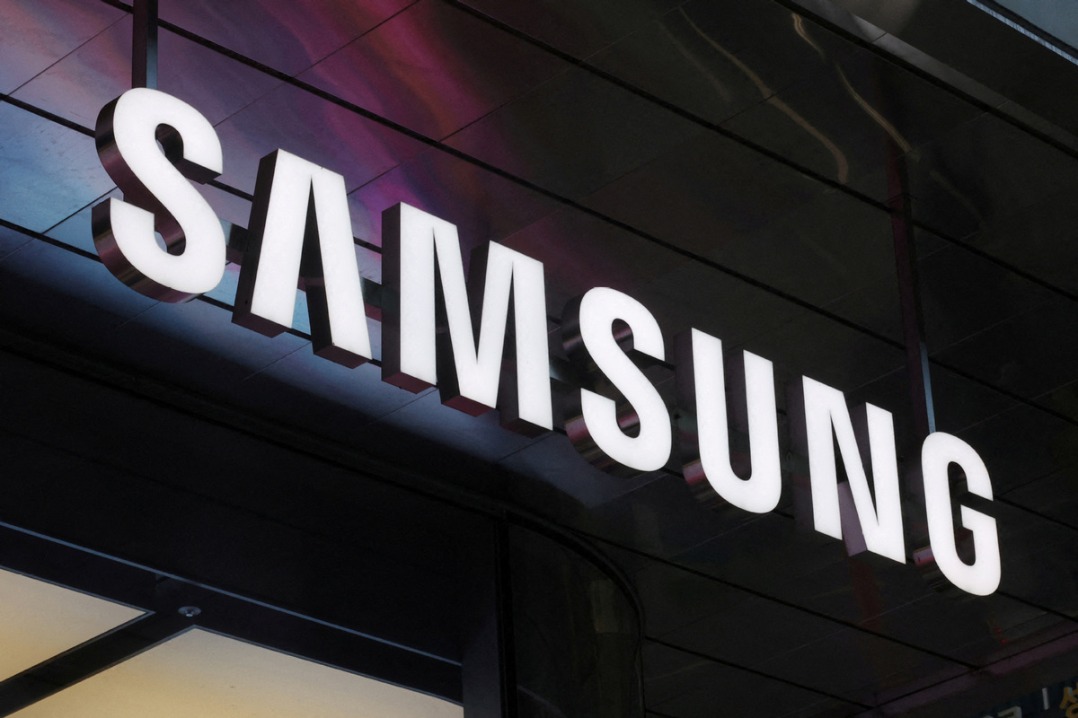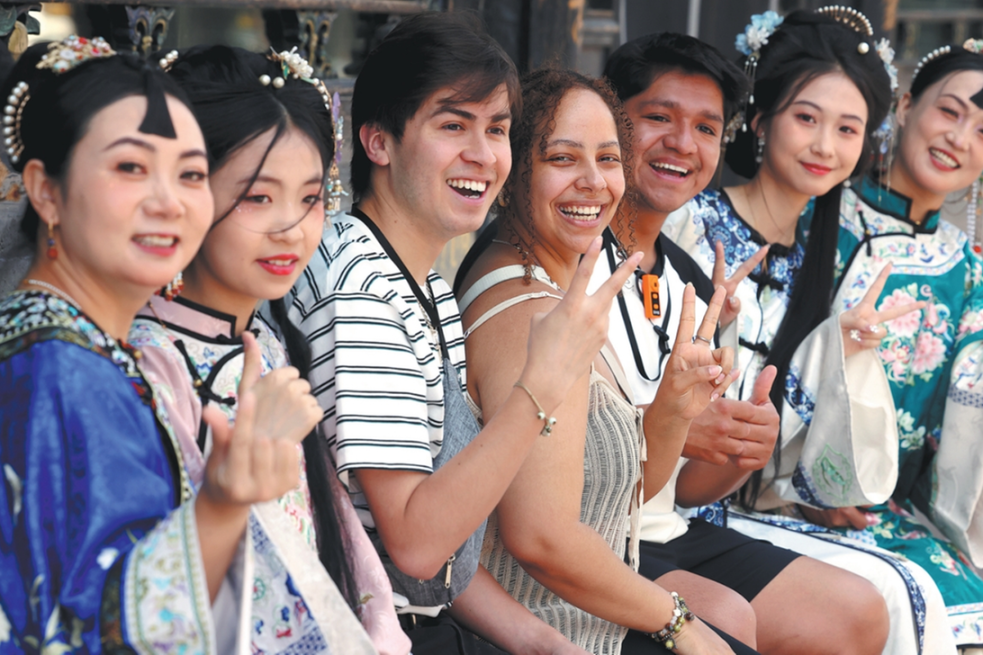Reception in Tokyo marks 80th anniversary of war victory

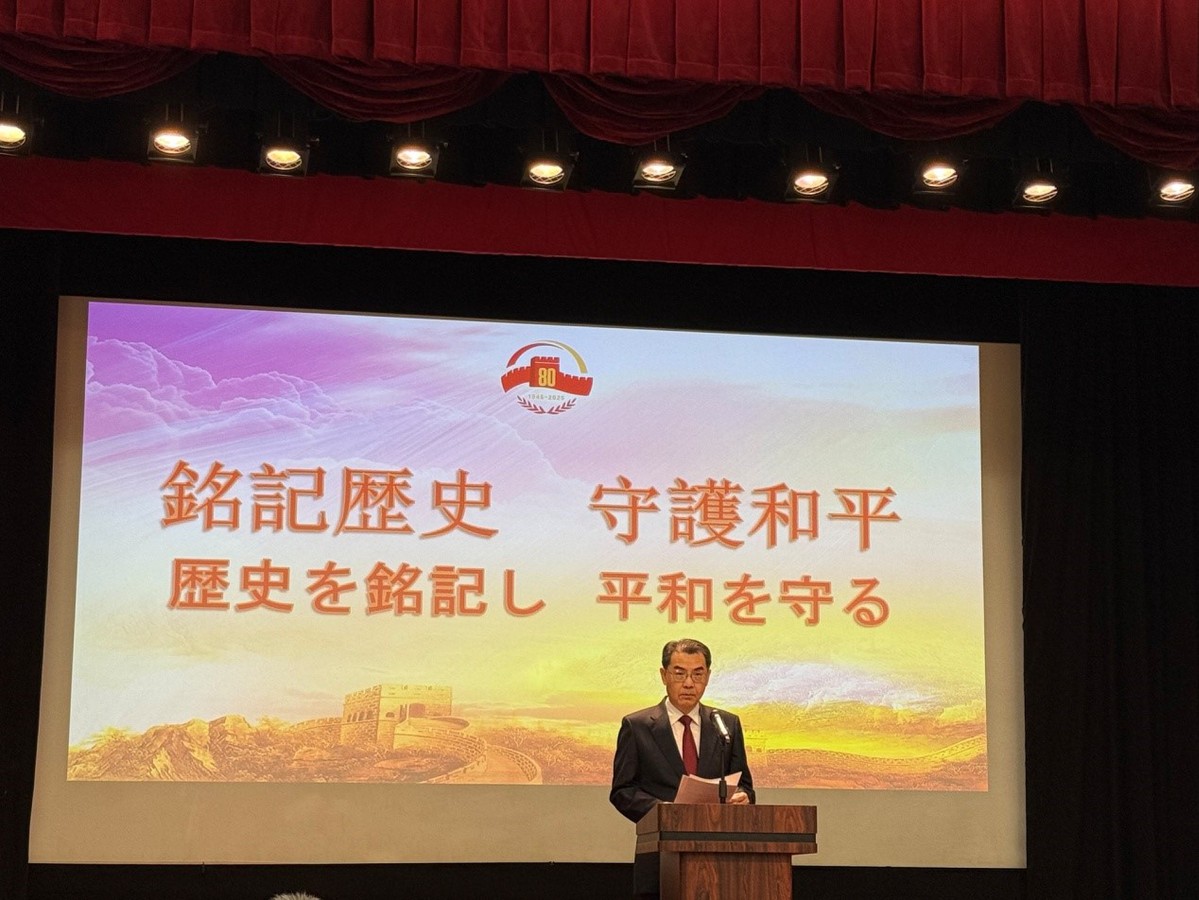
Government officials and experts from the two countries urged Japan to firmly uphold the truth of history, draw lessons from the war, promote the steady and long-term development of China-Japan relations, and safeguard regional and global peace.
They made the remarks on Wednesday at a reception themed "Remembering History, Safeguarding Peace," marking the 80th anniversary of the victory in the Chinese People's War of Resistance Against Japanese Aggression and the World Anti-Fascist War.
Chinese Ambassador to Japan Wu Jianghao underscored the great significance of the Chinese people's victory in the War of Resistance Against Japanese Aggression for both the Chinese nation and the world, calling for joint efforts to uphold historical truth and maintain regional peace.
“This is to remember history, honor the fallen heroes, cherish peace, and create a better future,” he said.
Wu stressed China's willingness to work with peace-loving Japanese people, taking history as a mirror and looking forward to the future. He vowed resolute opposition to any attempts to distort, glorify, or deny the history of aggression, calling for joint efforts to safeguard historical truth and pass on the torch of peace to future generations.
The reception hosted by the Embassy of China in Japan brought together over 300 participants, including representatives from more than 30 Japanese peace and friendship organizations, elderly survivors of the war and their families, as well as long-standing peace activists.
They agreed that holding this event on the 80th anniversary of the victory carries profound significance.
Banri Kaieda, executive advisor to the Constitutional Democratic Party of Japan and member of the House of Representatives, said learning from those who lived through the war was invaluable.
"Among Japan's current politicians, fewer and fewer have experienced the war, which is very dangerous. We must learn from this war to ensure Japan does not go down the wrong path in the future," Kaieda said.
"We will never forget the atrocities committed by Japanese militarism in China. Accurately recording and impartially passing on the historical truth to prevent the recurrence of such tragedies is the unshirkable responsibility and firm conviction of our generation," said Mizuho Fukushima, leader of the Social Democratic Party, in a speech delivered on her behalf by Ryoichi Hattori, secretary-general of the party.
Takakage Fujita, secretary-general of the Association for Inheriting and Propagating the Murayama Statement, a Japanese civic group dedicated to upholding the 1995 Murayama Statement that admits Japan's wartime mistakes, was critical of the country's conservative and right-wing circles.
"Only through constant reflection on Japan's wrong actions in the past can we truly safeguard our nation's dignity," he said.
He also quoted Japanese writer Shuichi Kato: "Distorting history brings absolutely no benefit but countless harms. It not only severely damages Japan-China friendship but also tramples upon the dignity of the Japanese nation."
Kumiko Haba, distinguished professor at Josai International University in Tokyo, emphasized the importance of youth and civil society groups for the future of China-Japan friendship. "While certain political and media circles in Japan still maintain biases against China, grassroots friendship is gaining momentum across the nation—with the Japan-China Friendship Association, youth exchanges, and local government cooperation expanding from Okinawa throughout Japan," she said.
Haba highly praised China's commitment to a path of peaceful development. "China has achieved its rise through investment in education, technological innovation, and dialogue among civilizations—not through military expansion or zero-sum games. At a time when the shadow of war looms over the world, China's choice to replace armed confrontation with mutual learning among civilizations is particularly valuable."
















